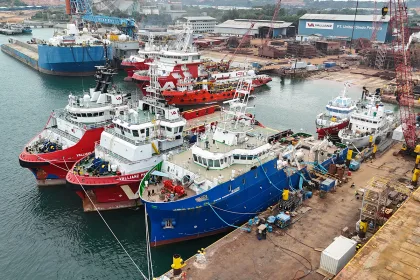By Keith Breslauer, Managing Director of Patron Capital
Over the past 30 years, China’s economy has grown rapidly. The country has emerged as a major global economic superpower, as well as the world’s largest manufacturer and merchandise trader – on a purchasing power parity basis – and holder of foreign exchange reserves.
This success pulled millions into China’s urban areas and caused the country’s property market some considerable agitation. In 1978, just prior to the free market reforms that sparked China’s swift ascent to economic power, less than 20 percent of China’s population lived in cities. Today, that figure has reached 55 percent; and approximately 275 million people – more than a third of China’s entire labour force – are migrant workers from rural areas.
But the rapid rate of economic growth has proved fragile. It was recently revealed that China’s economy grew just 6.9 percent in 2015, compared with 7.3 percent a year earlier, marking the country’s slowest growth in 25 years.
PROPERTY SLUMP
Subsequent inspection of the Chinese property market also reveals cause for concern. Property price-to-income ratios have risen to above 20 times, leading to a glut of empty properties and millions of unsold homes. Last year, China’s National Bureau of Statistics estimated that unsold residential floor space totalled 657 square kilometres; an area nearly the size of Singapore.
This property surplus has caused a slump in homebuilding, a severe decline in property prices and an erosion of household wealth. Developers of, and investors in, Chinese residential property are, accordingly, far less active in the face of potential financial difficulties. Furthermore, the country’s economic slowdown has had a knock-on effect on the property market elsewhere. Last year, for example, Chinese investors pulled out of a £455 million purchase of Broadgate Quarter in the City of London. With China having accumulated debts of 200 percent of GDP and rising, as well as its stock market faltering, ongoing issues with its economy could potentially lead to a global recession.
Nevertheless, residential and commercial property agency Knight Frank has reported that the situation in China has led wealthy individuals and companies to seek alternative routes to export capital. Their interest in safe-haven global property markets has intensified and is encouraged by state-provided subsidies – such as cheap capital and assistance from the Chinese government – for those investing abroad.
LOOKING TOWARDS THE UK
Europe has traditionally been an alternative route to export capital for Chinese companies. Between 2000 and 2014, Chinese companies spent €46 billion on 1,047 direct investments in the 28 EU countries. In 2014, Chinese investment in Europe hit a record high, reaching €14 billion for the whole year. According to Cushman & Wakefield, for the period 2008-2014, 23 percent of China’s total outbound real estate investment was spent in Europe, coming in third place after Asia and North America; at 33.8 percent and 29 percent respectively.
The country’s real estate investment in Europe totalled more than US$8 billion (approximately €7.3 billion) between 2009 and 2014 and total investment increased nearly 87-fold between 2011 and 2013, reaching US$4.6 billion in 2013 (approximately €4.2 billion). Indeed, Asia’s richest man and founder of Cheung Kong Holdings, Li Ka-shing, has reportedly sold more than 20 billion yuan of commercial properties in Shanghai, Beijing and Guangzhou since 2013, renewing rumours that he will exit China to focus on opportunities in Europe.
FURTHER AFIELD
Over the course of 2015, while London remains Europe’s most popular property market among Chinese property investors – attracting €47 billion of capital in the third quarter of 2015 – Europe’s strengthening property markets are attracting investors to other countries including Spain, Portugal, France, and even Greece.
As the situation in China becomes more and more concerning, it remains to be seen whether investors there will continue to invest in Europe in the way they have done in recent years. Certainly, Europe continues to offer significant opportunities and is attracting interest from investors across the world. Competition for quality assets in prime cities such as Paris, London, Munich and Frankfurt continues to intensify, but Europe is a complex area with unique individual markets, and countries with markedly different investment characteristics sit in close proximity to one another.
Investments in Europe therefore need to be made at the right price, at the right time and supported by in-depth local market knowledge. For those that are discerning of local markets, well-connected enough to access the best deals, and creative enough to identify opportunities that others may overlook, there are many opportunities to be found in Europe. Given this, demand for specialist local knowledge is at its height, as many believe that rather than direct investment, funds with local partners are strategically the most prudent way to achieve strong returns on investment.
Read the full article in the latest issue of APAC Outlook here.


































